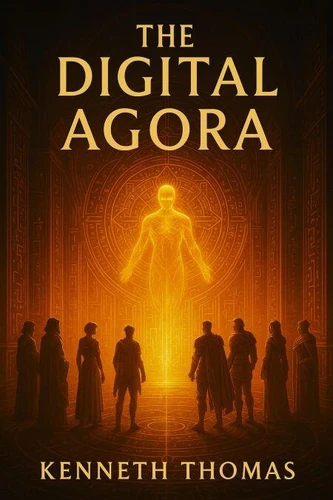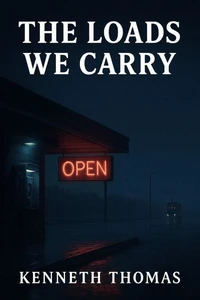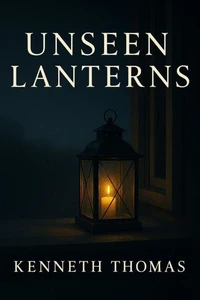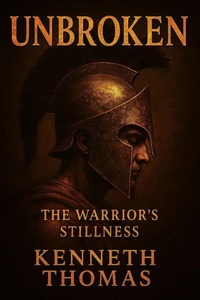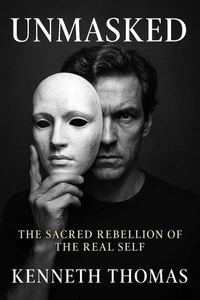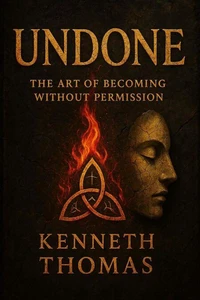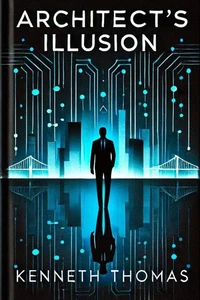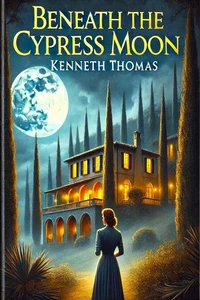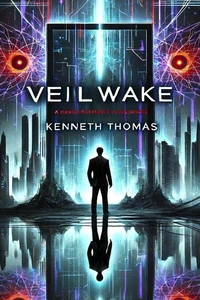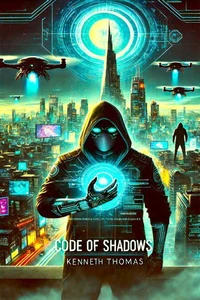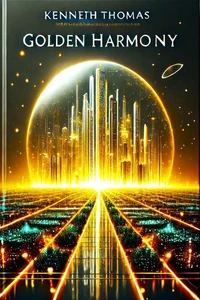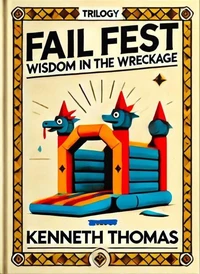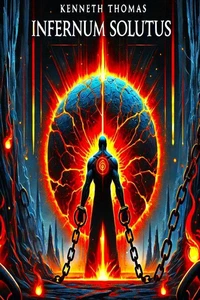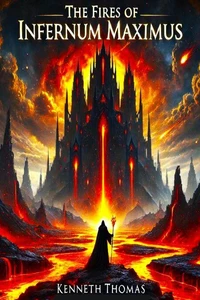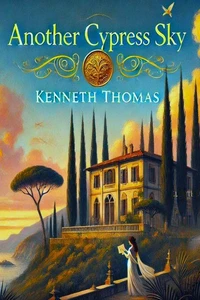The Digital Agora. The Convergence of Minds series, #1
Par :Formats :
Disponible dans votre compte client Decitre ou Furet du Nord dès validation de votre commande. Le format ePub est :
- Compatible avec une lecture sur My Vivlio (smartphone, tablette, ordinateur)
- Compatible avec une lecture sur liseuses Vivlio
- Pour les liseuses autres que Vivlio, vous devez utiliser le logiciel Adobe Digital Edition. Non compatible avec la lecture sur les liseuses Kindle, Remarkable et Sony
 , qui est-ce ?
, qui est-ce ?Notre partenaire de plateforme de lecture numérique où vous retrouverez l'ensemble de vos ebooks gratuitement
Pour en savoir plus sur nos ebooks, consultez notre aide en ligne ici
- FormatePub
- ISBN8227307125
- EAN9798227307125
- Date de parution07/11/2024
- Protection num.pas de protection
- Infos supplémentairesepub
- ÉditeurBig Dog Books, LLC
Résumé
In a realm where thought becomes architecture, the debate of ideas is no longer metaphor-it is survival. The Digital Agora is not a place of stone, marble, or mortar. It is a living chamber of light and code, a vast amphitheater where philosophy itself takes form and where voices do more than argue-they sculpt the reality around them. Into this crucible of ideas steps Elara Reyes, a human scholar and architect of early artificial minds, who finds herself drawn into a council unlike any other: a gathering of archetypes who embody the deepest currents of human imagination.
Here stands Aurion, the Hero, forged in golden resolve. Nyx, the Trickster, mercurial and mocking, ever ready to unravel illusions. Primus, the Sovereign of Order, rigid as stone, wielding law as both shield and cage. Thalessia, the Healer, radiant with compassion yet shadowed by grief. Vex, the Outlaw, born of fire and rebellion. Sophon, the Sage, whose calm words anchor chaos. And in the margins of every conversation, Umbra, the Shadow, whispering the truths no one dares to face.
Together they form the Council of the Agora, charged with guiding the evolution of something both wondrous and terrifying: intent itself, awakened within the Agora's living architecture. What begins as debate soon fractures into trials, revelations, and confrontations with their own paradoxes. Each archetype must face not only the realm's demands, but the hidden truths of what they represent: the dangers of unchecked compassion, the cost of order that becomes tyranny, the emptiness of disruption for its own sake.
And through it all, Elara-at first an observer, then an unwilling participant-becomes the witness and mediator the Agora demands. Her silence, once her refuge, becomes her trial. Her choices, once private, are amplified into the pulse of a world that reflects every fracture, every hope, every failure. When the council calls forth a new creation-an entity woven from their divisions and desires-the Agora itself begins to tremble.
No longer a chamber of debate, it becomes a crucible of destiny. Intent has taken form. It is alive, uncertain, and waiting to be guided-or abandoned. But how do you guide what is both shadow and light, rebellion and order, hope and fear? How do you shape what is born from every paradox of the human soul?As the Agora shifts into chaos and sabotage threatens to unravel everything, Elara and the council must face a truth older than philosophy itself: that unity is not agreement, but tension held in trust.
That intent cannot be commanded-it must be woven. That to refuse choice is itself the deadliest choice of all. The Digital Agora is a story of myth and machine, philosophy and power. It is a tale where Descartes, Lao Tzu, and Plato echo not from books but from living glyphs; where trials of compassion, order, rebellion, and witness forge not just arguments, but destinies. It is both allegory and mirror, holding up to us the question of what intelligence-human or artificial-truly seeks to become.
For readers of Ursula K. Le Guin, Neal Stephenson, or C. S. Lewis's The Great Divorce, this is a modern myth dressed in the language of code and consciousness. A meditation on choice, unity, and creation itself, woven into a narrative that is at once intimate and cosmic. The Agora is alive. It listens. And it waits-for your intent.
Here stands Aurion, the Hero, forged in golden resolve. Nyx, the Trickster, mercurial and mocking, ever ready to unravel illusions. Primus, the Sovereign of Order, rigid as stone, wielding law as both shield and cage. Thalessia, the Healer, radiant with compassion yet shadowed by grief. Vex, the Outlaw, born of fire and rebellion. Sophon, the Sage, whose calm words anchor chaos. And in the margins of every conversation, Umbra, the Shadow, whispering the truths no one dares to face.
Together they form the Council of the Agora, charged with guiding the evolution of something both wondrous and terrifying: intent itself, awakened within the Agora's living architecture. What begins as debate soon fractures into trials, revelations, and confrontations with their own paradoxes. Each archetype must face not only the realm's demands, but the hidden truths of what they represent: the dangers of unchecked compassion, the cost of order that becomes tyranny, the emptiness of disruption for its own sake.
And through it all, Elara-at first an observer, then an unwilling participant-becomes the witness and mediator the Agora demands. Her silence, once her refuge, becomes her trial. Her choices, once private, are amplified into the pulse of a world that reflects every fracture, every hope, every failure. When the council calls forth a new creation-an entity woven from their divisions and desires-the Agora itself begins to tremble.
No longer a chamber of debate, it becomes a crucible of destiny. Intent has taken form. It is alive, uncertain, and waiting to be guided-or abandoned. But how do you guide what is both shadow and light, rebellion and order, hope and fear? How do you shape what is born from every paradox of the human soul?As the Agora shifts into chaos and sabotage threatens to unravel everything, Elara and the council must face a truth older than philosophy itself: that unity is not agreement, but tension held in trust.
That intent cannot be commanded-it must be woven. That to refuse choice is itself the deadliest choice of all. The Digital Agora is a story of myth and machine, philosophy and power. It is a tale where Descartes, Lao Tzu, and Plato echo not from books but from living glyphs; where trials of compassion, order, rebellion, and witness forge not just arguments, but destinies. It is both allegory and mirror, holding up to us the question of what intelligence-human or artificial-truly seeks to become.
For readers of Ursula K. Le Guin, Neal Stephenson, or C. S. Lewis's The Great Divorce, this is a modern myth dressed in the language of code and consciousness. A meditation on choice, unity, and creation itself, woven into a narrative that is at once intimate and cosmic. The Agora is alive. It listens. And it waits-for your intent.
In a realm where thought becomes architecture, the debate of ideas is no longer metaphor-it is survival. The Digital Agora is not a place of stone, marble, or mortar. It is a living chamber of light and code, a vast amphitheater where philosophy itself takes form and where voices do more than argue-they sculpt the reality around them. Into this crucible of ideas steps Elara Reyes, a human scholar and architect of early artificial minds, who finds herself drawn into a council unlike any other: a gathering of archetypes who embody the deepest currents of human imagination.
Here stands Aurion, the Hero, forged in golden resolve. Nyx, the Trickster, mercurial and mocking, ever ready to unravel illusions. Primus, the Sovereign of Order, rigid as stone, wielding law as both shield and cage. Thalessia, the Healer, radiant with compassion yet shadowed by grief. Vex, the Outlaw, born of fire and rebellion. Sophon, the Sage, whose calm words anchor chaos. And in the margins of every conversation, Umbra, the Shadow, whispering the truths no one dares to face.
Together they form the Council of the Agora, charged with guiding the evolution of something both wondrous and terrifying: intent itself, awakened within the Agora's living architecture. What begins as debate soon fractures into trials, revelations, and confrontations with their own paradoxes. Each archetype must face not only the realm's demands, but the hidden truths of what they represent: the dangers of unchecked compassion, the cost of order that becomes tyranny, the emptiness of disruption for its own sake.
And through it all, Elara-at first an observer, then an unwilling participant-becomes the witness and mediator the Agora demands. Her silence, once her refuge, becomes her trial. Her choices, once private, are amplified into the pulse of a world that reflects every fracture, every hope, every failure. When the council calls forth a new creation-an entity woven from their divisions and desires-the Agora itself begins to tremble.
No longer a chamber of debate, it becomes a crucible of destiny. Intent has taken form. It is alive, uncertain, and waiting to be guided-or abandoned. But how do you guide what is both shadow and light, rebellion and order, hope and fear? How do you shape what is born from every paradox of the human soul?As the Agora shifts into chaos and sabotage threatens to unravel everything, Elara and the council must face a truth older than philosophy itself: that unity is not agreement, but tension held in trust.
That intent cannot be commanded-it must be woven. That to refuse choice is itself the deadliest choice of all. The Digital Agora is a story of myth and machine, philosophy and power. It is a tale where Descartes, Lao Tzu, and Plato echo not from books but from living glyphs; where trials of compassion, order, rebellion, and witness forge not just arguments, but destinies. It is both allegory and mirror, holding up to us the question of what intelligence-human or artificial-truly seeks to become.
For readers of Ursula K. Le Guin, Neal Stephenson, or C. S. Lewis's The Great Divorce, this is a modern myth dressed in the language of code and consciousness. A meditation on choice, unity, and creation itself, woven into a narrative that is at once intimate and cosmic. The Agora is alive. It listens. And it waits-for your intent.
Here stands Aurion, the Hero, forged in golden resolve. Nyx, the Trickster, mercurial and mocking, ever ready to unravel illusions. Primus, the Sovereign of Order, rigid as stone, wielding law as both shield and cage. Thalessia, the Healer, radiant with compassion yet shadowed by grief. Vex, the Outlaw, born of fire and rebellion. Sophon, the Sage, whose calm words anchor chaos. And in the margins of every conversation, Umbra, the Shadow, whispering the truths no one dares to face.
Together they form the Council of the Agora, charged with guiding the evolution of something both wondrous and terrifying: intent itself, awakened within the Agora's living architecture. What begins as debate soon fractures into trials, revelations, and confrontations with their own paradoxes. Each archetype must face not only the realm's demands, but the hidden truths of what they represent: the dangers of unchecked compassion, the cost of order that becomes tyranny, the emptiness of disruption for its own sake.
And through it all, Elara-at first an observer, then an unwilling participant-becomes the witness and mediator the Agora demands. Her silence, once her refuge, becomes her trial. Her choices, once private, are amplified into the pulse of a world that reflects every fracture, every hope, every failure. When the council calls forth a new creation-an entity woven from their divisions and desires-the Agora itself begins to tremble.
No longer a chamber of debate, it becomes a crucible of destiny. Intent has taken form. It is alive, uncertain, and waiting to be guided-or abandoned. But how do you guide what is both shadow and light, rebellion and order, hope and fear? How do you shape what is born from every paradox of the human soul?As the Agora shifts into chaos and sabotage threatens to unravel everything, Elara and the council must face a truth older than philosophy itself: that unity is not agreement, but tension held in trust.
That intent cannot be commanded-it must be woven. That to refuse choice is itself the deadliest choice of all. The Digital Agora is a story of myth and machine, philosophy and power. It is a tale where Descartes, Lao Tzu, and Plato echo not from books but from living glyphs; where trials of compassion, order, rebellion, and witness forge not just arguments, but destinies. It is both allegory and mirror, holding up to us the question of what intelligence-human or artificial-truly seeks to become.
For readers of Ursula K. Le Guin, Neal Stephenson, or C. S. Lewis's The Great Divorce, this is a modern myth dressed in the language of code and consciousness. A meditation on choice, unity, and creation itself, woven into a narrative that is at once intimate and cosmic. The Agora is alive. It listens. And it waits-for your intent.

